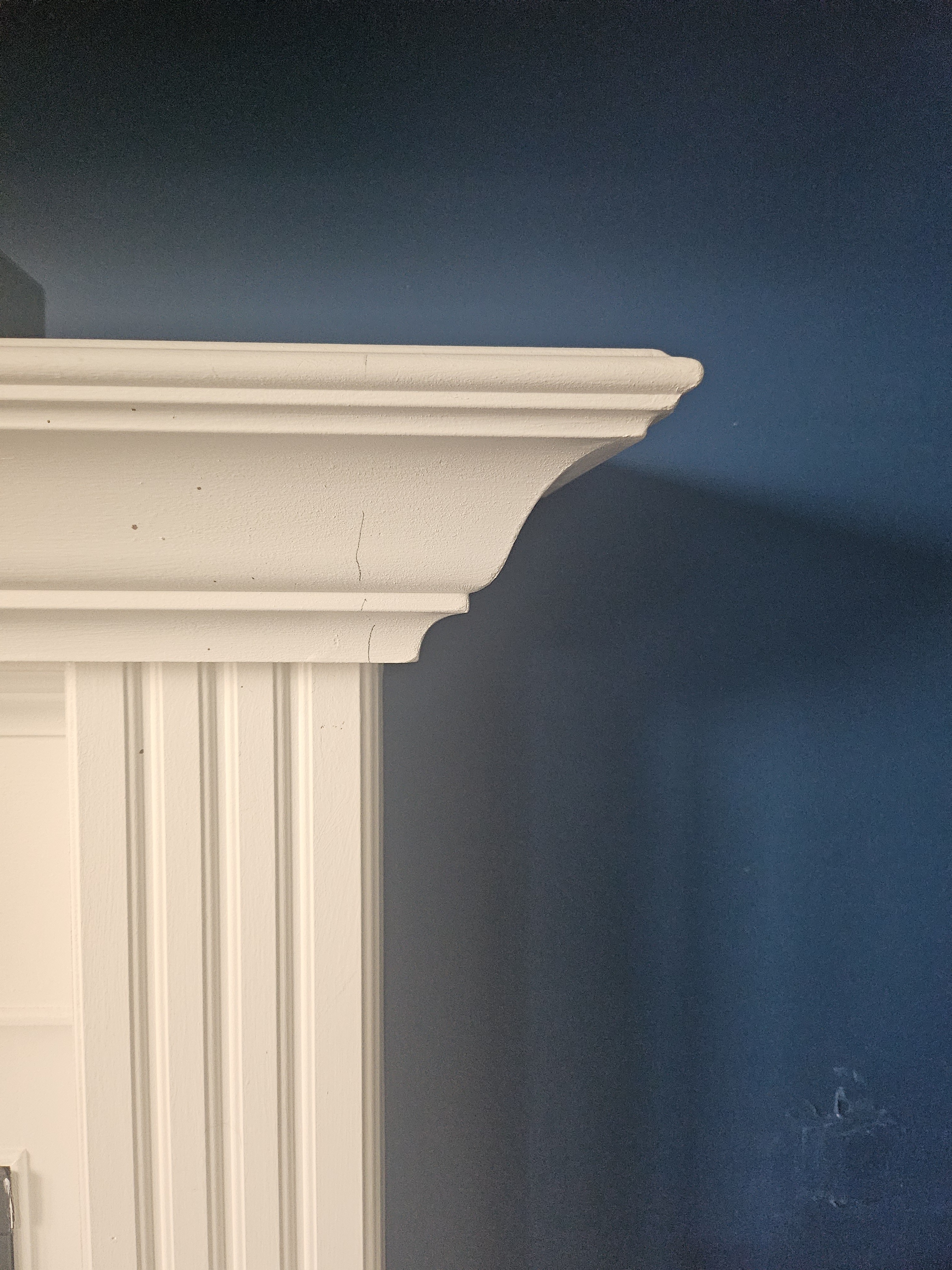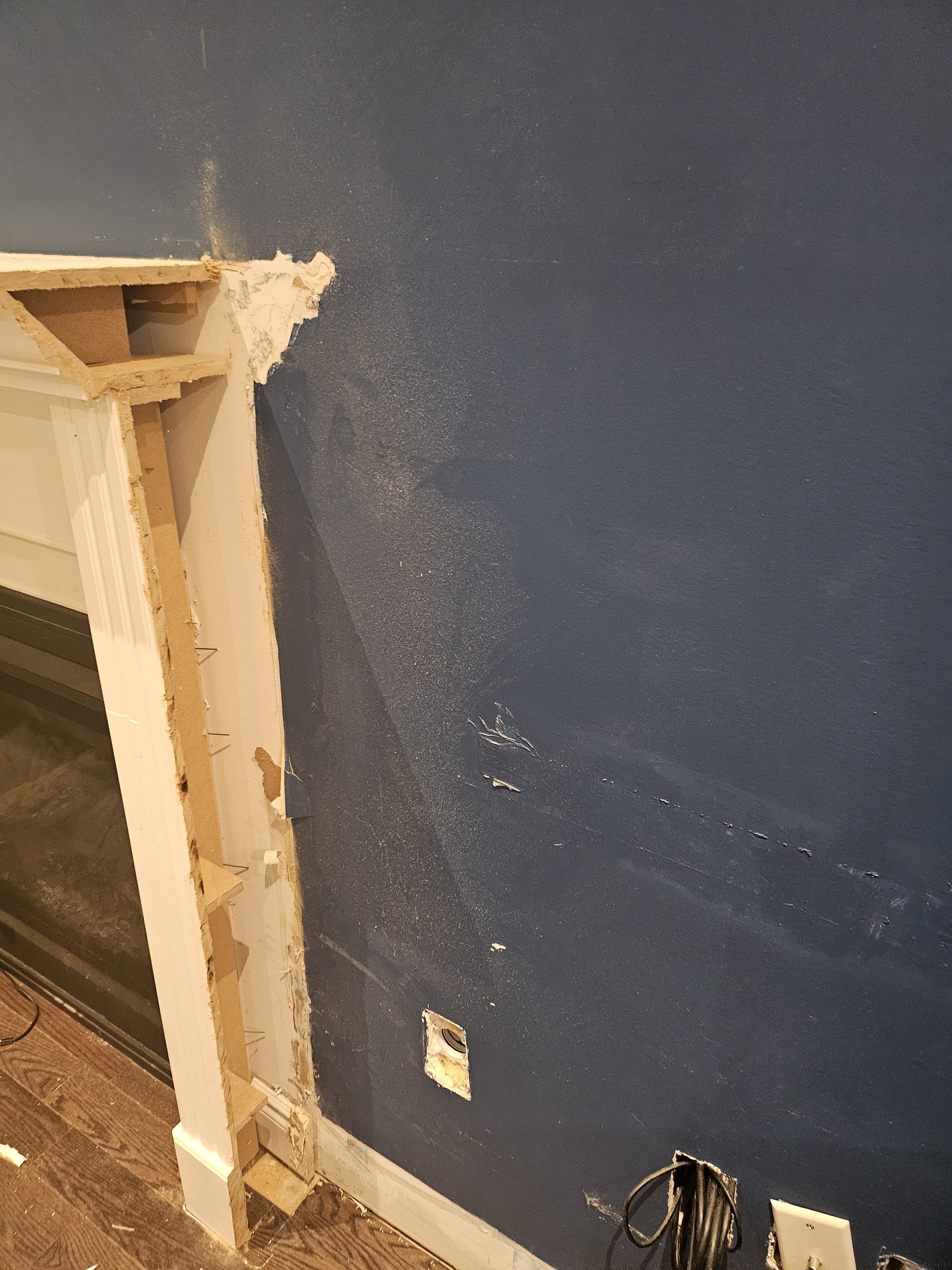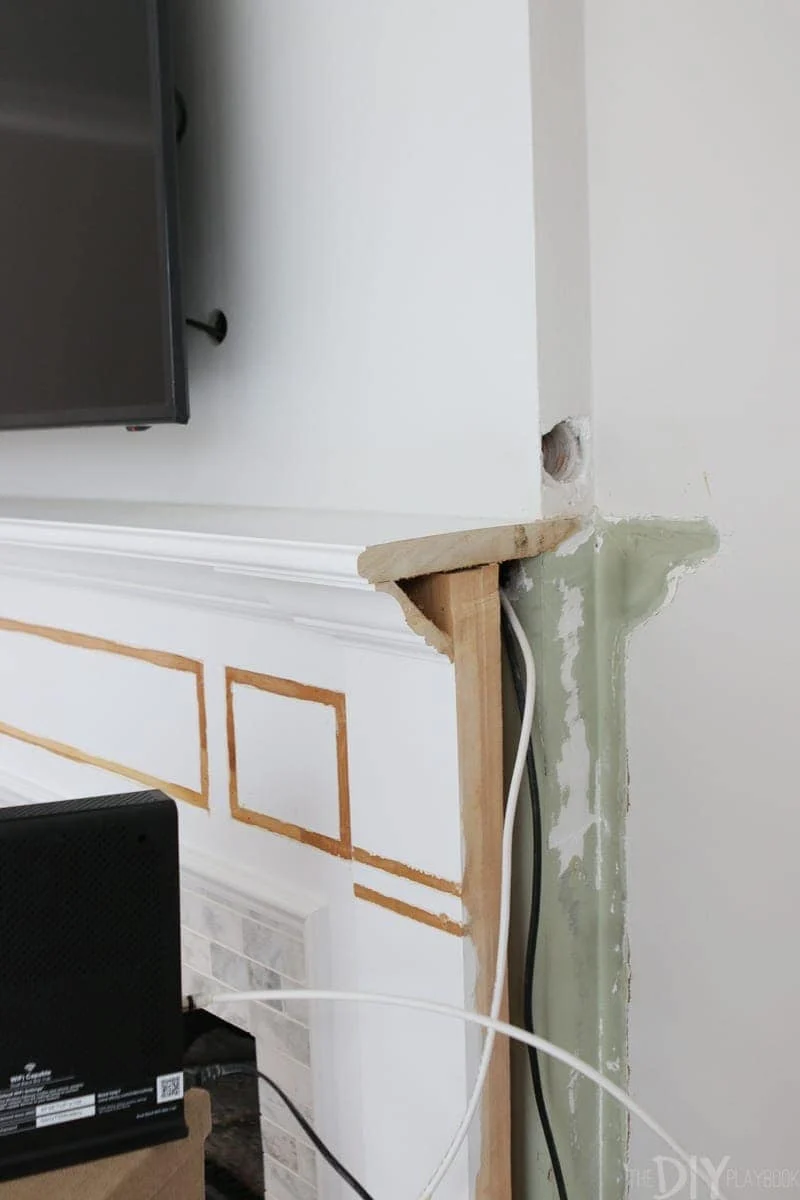Free hand with an oscillating multi-tool along a rough line, hand sand it to fit flush.
Woodworking
A handmade home for woodworkers and admirers of woodworkers. Our community icon is submitted by @[email protected] whose father was inspired to start woodworking by Norm and the New Yankee Workshop.
This is the answer. You can also screw a block to the top and use that to keep the multi tool blade straight. Gives a couple of holes to sort on the top but a much less work straightening up the edge.
Thank you!!!! This is a great idea!!
Look up the blue tape and super glue trick and you can save yourself from filling holes.
I would do it from the top (flat) with a guide. I would probably start with a circular saw, go until the front bumps the wall and finish the last parts with another tool. This allows the front and top to look straight which is all you'll see
Thank you! I'll give this a shot

This is the detail and shape of the overhang on my mantel, with the line of where I'd like to remove it marked out.
That looks like it might be a separate molding around the edge, mitered at the corner? See if you can figure out how it's attached—you may be able to pry off the portion that would be running front-to-back in the photo without damaging anything, then cut off the mitered corner on the left-to-right length with a handsaw..
If it's edging on a solid slab, pick whichever power saw you think is most likely to cut through in one pass and set up a guide to make sure the cut is straight, that's all I can say.
A contour gauge could be very helpful here.
Thank you for the suggestion, how would you use the contour gauge?
First, let me make sure I understand what you're trying to accomplish.
Are you attempting to cut a piece of wood that'll match the profile of the rounded top, and the trim/molding just below it? Sort of like a "end cap" to cover up the rough edge and wires?
No, I'm trying to cut the mantle so that it is a flat 90 degrees, similar to the picture. I'm going to have my shelves butt up against it and will caulk the seam so it's invisible anyway.
I thought that's where the misunderstanding might be.
Update: success friends!! Thank you to those who recommended the multitool- it's making life so much easier to take the trim off too.
This photo is pre-sanding- the entire side will be covered by bookshelf, and any gaps will be filled/painted. I also realized that we can use the mantle in our case to run wires through too- which will make everything much easier (I won't need to step the bookshelf out from the wall with furring strips).
Thanks again!!

